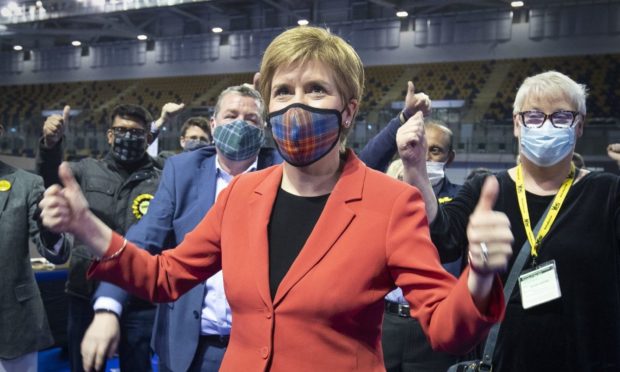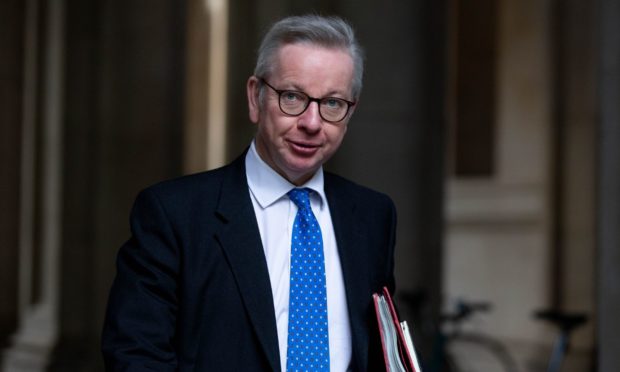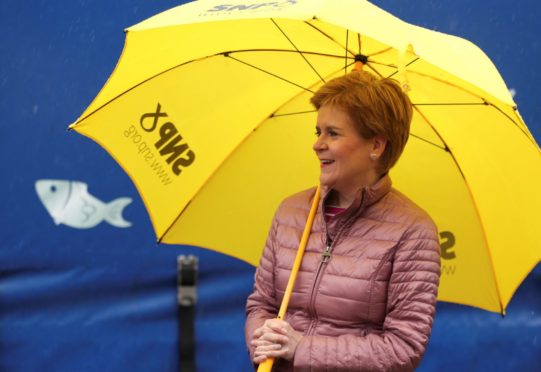The UK Government claimed another Scottish independence referendum is “not an issue for the moment” after Nicola Sturgeon warned Boris Johnson cannot block a second vote on the constitution.
A day after SNP won a fourth decisive election victory, falling one seat short of an outright Holyrood majority, senior Tory Michael Gove insisted there is no immediate prospect of another vote.
But he dodged a question on whether the UK government would go to court to stop it.
Mr Gove, who was largely absent from the Scottish election campaign trail, appeared on Sky News and the BBC, twice, to stress Boris Johnson’s government would not grant a formal Section 30 order required to allow an agreed referendum.
“We’re not going to go down the route of talking about independence or legal challenges or anything like that when our principal focus, our exclusive attention, is going on pandemic recovery,” he told BBC Scotland’s Sunday Show.
Speaking on Sky News, he claimed: “One of the things to bear in mind is that Nicola Sturgeon obviously secured a good result, the SNP did not get a majority in this election as they did in 2011.
“In 2011 the SNP under Alex Salmond got a majority and a referendum then followed. It’s important to remember at that time every party in the Scottish Parliament thought it was appropriate to hold a referendum them.”
“The SNP did not get a majority in this election and also critically we had a campaign in which all of the party leaders acknowledge that the single most important thing was dealing with the pandemic and I think that a movement away from that would be something I think voters would feel disappointed that we were not concentrating on their priorities” he said.
The First Minister meanwhile said it is important to give the people of Scotland the chance to decide its own future, but added the time for a referendum is not now.
‘It is up to the Scottish people’
She told the BBC’s Andrew Marr: “It is not, and shouldn’t be in a democracy, a controversial argument.
“Michael Gove is against Scottish independence, but it shouldn’t be up to him or I to decide – it is up to the Scottish people who voted overwhelmingly for the SNP.
“Firstly we need to steer the country though the pandemic but after the crisis we need to give the people of Scotland the opportunity to choose their own future.”
The Prime Minister previously said he is prepared to take the SNP to the Supreme Court to stop the party from holding a second independence referendum.
Responding, Ms Sturgeon said: “I think it would be absurd and outrageous if it ever got to that point because for this to end up in court it would mean the Conservative government refused to respect the democratic wish of the Scottish people and is trying to go to the Supreme Court to overturn Scottish democracy, which would not play well.
“In the previous referendum the UK Government agreed there was a mandate for a referendum and that is what could happen this time when the Scottish Parliament decides the time is right – which is not right now.
“This whole debate is predicated on a situation where the UK Government refuses to accept Scottish democracy and means the UK is no longer a union based on consent, and that somehow Scotland should be retained by force of law.
“If we get to that point, the implication of that is very grave indeed.”
Recovery first
Meanwhile, Scottish Lib Dem leader Willie Rennie said: “Before polling day Nicola Sturgeon promised the recovery would come first but all she has talked about since is independence.
“People who voted for the SNP but are opposed to a referendum will be concerned about how the first minister is using their support.
“She must keep her word and put recovery first.”
Scottish Tory leader Douglas Ross, who won a seat in the Highlands and Islands, claimed his party had effectively blocked a referendum.
Scottish Greens make up a clear pro independence majority at Holyrood but the leadership has stopped short of saying they would join the SNP in a more formal governing coalition.


